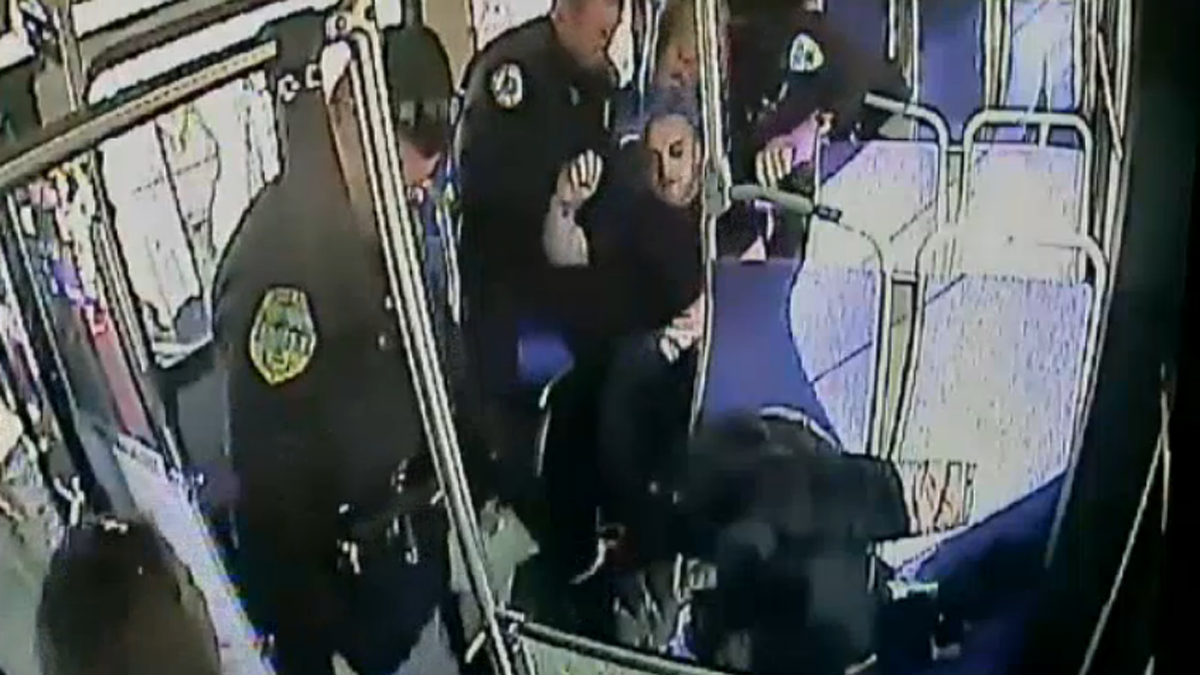New Jersey overdose intervention brings recovery specialists right into the ER

In this SEPTA surveillance video screenshot
It’s a nationwide epidemic, but in the last decade, thousands of people in New Jersey alone have died from a heroin-related overdose.
The crisis has spurred a slew of responses. In recent years, that has included the expanded use of the drug naloxone (brand name Narcan) that, if administered soon enough, can reverse on the spot a potentially fatal overdoses.
This month, a new program rolled out in Monmouth and Ocean counties that aims to go a step further: supporting people in the immediate moments after they’ve been revived.
Connie Green, vice president of Barnabas Health’s Institute for Prevention, said that while naloxone is a life-saving, critical tool, it by no means breaks the cycle of addiction, which is a complicated journey.
“Doing Narcan reversals alone without interventions was just a revolving door of repeating Narcan reversals,” said Green.
Even so, she and others view the moments after someone has been revived as an opportunity. So that’s where John Brogan, who’s been brought back by Narcan himself, enters the picture.
“I was struggling with this thing since the time I was 17, 18 years old,” he said. “It gives me 20 years experience bouncing in and out of treatment centers, bouncing in and out of jails.”
Brogan is one of 14 “recovery specialists” who are part of the new state-funded pilot. His role is to respond within minutes to those who’ve overdosed, meeting them in the ER. Bringing in his shared experience, he said, is powerful.
“When the recovery specialist sits across from someone and says, ‘I know exactly how you’re feeling,’ it melts down all the barriers, all the walls,” Brogan said.
Even if someone is interested in getting into detox or treatment, figuring out the system is nearly impossible on one’s own, Brogran said. That’s why he and other specialists follow up with people for a couple months, helping them navigate.
The pilot program launched a few weeks ago, and Green said a majority of those they’ve reached out to so far — 21 out of 30 — have opted to participate in the pilot and have enrolled in some form of treatment.
The specialists are in two hospitals right now but plan to move into three more.
For more about naloxone and how communities are responding to the increase in drug overdoses, download the podcast or tune into WHYY’s The Pulse on Friday at 9 a.m.
WHYY is your source for fact-based, in-depth journalism and information. As a nonprofit organization, we rely on financial support from readers like you. Please give today.

